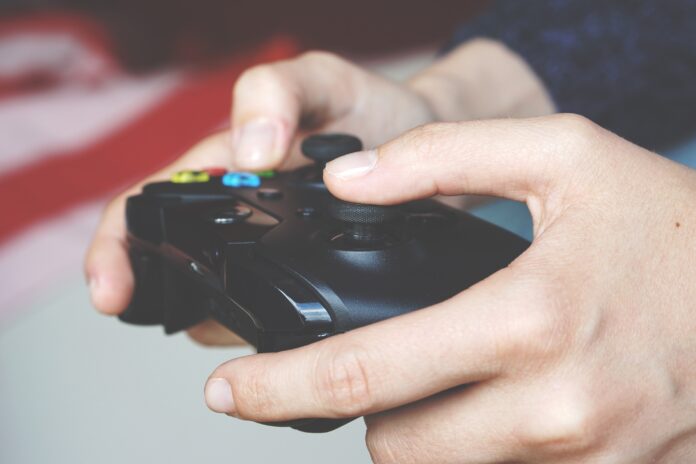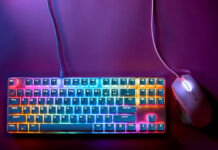
Legal dispute on Action Replay devices for PlayStation Portable games
The plaintiff – Sony Computer Entertainment Europe – is the exclusive distributor of various gaming systems and games for the European market. The defendants develop, produce and market devices (cartridges) under the trademark “Action Replay”. These devices have been sold for popular gaming PCs and consoles since the 1980s, starting with Commodore’s “64” and “Amiga” PCs. The cartridges at issue contain cheating software for Sony’s Playstation Portable (“PSP”) system. They enable the users to circumvent specific limitations in PSP games such as the number of available items or perks such as boosts, ammunition or bonus lives. For this purpose, the defendants’ software modifies data that the games (temporarily) store in the random access memory (“RAM”) of the gaming system. The plaintiff claims that this is an unauthorised “alteration” of the games’ computer programs under Sec. 69c No. 2 German Copyright Act (equivalent to Art. 4(1) lit. b of Directive 2009/24/EC on the legal protection of computer programs).
Lower German courts are in disagreement
In the first instance, the Hamburg Regional Court largely upheld the plaintiff’s claims.[2] The court decided that the defendants’ software infringed the plaintiff’s right of alteration by modifying the program flow of the protected game software employing external commands.
However, on appeal by the defendants, the Hamburg Court of Appeal dismissed the action in 2021.[3] This was rather unexpected since in 2012, the same court upheld a preliminary injunction against one of the defendants in the same matter based on similar arguments as used in the Hamburg Regional Court.[4] 10 years later, the Court of Appeal changed its view. It found that the defendants’ software does not alter a computer program within the meaning of Sec. 69c No. 2 UrhG by merely modifying the data temporarily stored in the system’s RAM. This provision would only prevent the alteration of the program itself. This would not be the case here as the defendants’ software only modifies the program flow of the games’ software by additional program commands while not affecting the original code.
Federal Supreme Court asks CJEU about the scope of copyright protection for computer programs
The Federal Supreme Court stayed the proceedings and referred two questions to the CJEU for a preliminary ruling.
In short:
If another program running at the same time as a copyright protected computer program modifies the content of variable data created in the RAM and used in the execution of the protected program while not modifying the original object code or source code, does this constitute:
- an interference with the object of protection of “computer programs” under 1(1)–(3) of Directive 2009/24/EC?
- an “alteration” of a protected computer program within the meaning of Art. 4(1) lit. b of Directive 2009/24/EC?
Federal Supreme Court tends to deny copyright protection
The Federal Supreme Court’s reasoning for its decision to make a referral appears to favor the view of the Hamburg Court of Appeal. It tends to construe the term “computer program” in a narrow way, denying copyright protection to the plaintiff.
The Supreme Court adopts the view that the defendants’ software only interferes with the variable data in the RAM generated by the users whilst running the game. Their view is that the defendants’ software does not add any new commands to the games, but merely influences the time and frequency with which the game executes certain commands. As a result, the defendants’ program does not introduce any new elements, but merely generates situations that, otherwise, would not occur in the respective game.
Therefore, the Federal Supreme Court considers it rather unlikely that the CJEU will grant copyright protection to the plaintiff. In the view of the Supreme Court, the term “computer program” under Art. 1 of Directive 2009/24/EC only includes the original source code and equivalent forms of expression of this code such as the object code. In this context, the Supreme Court notes that ideas and principles underlying the computer program are not protected under Art. 1(2) sentence 2 of Directive 2009/24/EC. The Supreme Court further concludes that the mere function and flow of a software program as intended by its creators is not protected. In addition, the Supreme Court argues that the modified content – i. e., the variable data (temporarily) stored in the RAM – is not an expression of the individual decisions of the author but depend on the behavior of the individual player running the game. For the same reasons, the Supreme Court favors an interpretation of the term “alteration” that requires interference with the substance of the protected software, meaning the source code or object code.
The CJEU’s decision is uncertain – there are substantial arguments in favor of a broader construction of the law
It is possible that the CJEU will follow the Federal Supreme Court’s reasoning. However, in previous cases the CJEU construed the term “computer program” in a broader sense to include “any form of expression of a computer program” whose reproduction enables “the computer to perform its task”.[5] There are reasonable grounds to argue that this includes the entire structure of commands as it has been determined by the author of the program – irrespective of the location where the essential parts of this structure are (temporarily) stored.[6] The variable data created in the RAM is a mandatory part of functioning software on any modern system.
Therefore, the Hamburg Regional Court argued that it made no difference, either from the user’s or the author’s point of view, whether the program flow of the game software is changed by directly modifying the software code or by altering data in the main memory. Both are equally required parts of the computer program that determine the program flow of the game as intended by the author.[7] In both cases, the Action Replay software takes control over the protected software and modifies the executed commands.
A broad construction of the term would also be in line with the CJEU’s technology-neutral understanding of other kinds of use of copyright protected works. For example, the CJEU has determined that any transmission of a protected work is an act of communication to the public under Art. 3 InfoCoc-Directive, “irrespective of the technical means or process used”.[8] There is no apparent reason why, in contrast, the act of “adaption” of a “computer program” under Sec. 69c UrhG should rely on a specific technical approach.
Potential impact of the decision on the European market
The CJEU’s decision could have a significant impact on the European software market. Similar issues can arise in all cases of supplementary third-party software running in parallel to a copyright-protected main program. This will likely apply to various types of cheating and bot software, including the wide-spread mod menus available for PC and mobile games. However, the decision may also be relevant beyond the gaming sector. For example, there are ongoing proceedings in Germany regarding the Adblock browser extension software that enables the blocking of individual elements on websites such as advertising banners. The Hamburg Regional Court has recently denied the operator of a website copyright protection under Sec. 69a, 69c UrhG against the Adblock software.[9] These appeal proceedings are still pending before the Hamburg Court of Appeal.[10]
[1] Federal Supreme Court, Case I ZR 157/21 – Action Replay; filed by the CJEU as Case C-159/23 – Sony Computer Entertainment Europe.
[2] Hamburg Regional Court, Case 310 O 199/10, BeckRS 2012, 217197.
[3] Hamburg Court of Appeal, Case 5 U 23/12, GRUR 2022, 483.
[4] Hamburg Court of Appeal , Case 5 U 11/11, GRUR-RR 2013, 13.
[5] CJEU Case C-393/09 – BSA, para. 38.
[6] In the same vein: Czychowski/Nordemann GRUR 2022, 457, 461.
[7] Hamburg Regional Court BeckRS 2012, 217197, para. 48.
[8] CJEU Case C-117/15 – Reha Training, para. 38.
[9] Hamburg Regional Court, Case 308 O 130/19, GRUR-RR 2022, 253 – Adblocker.
[10] Filed under Case 5 U 20/22.









